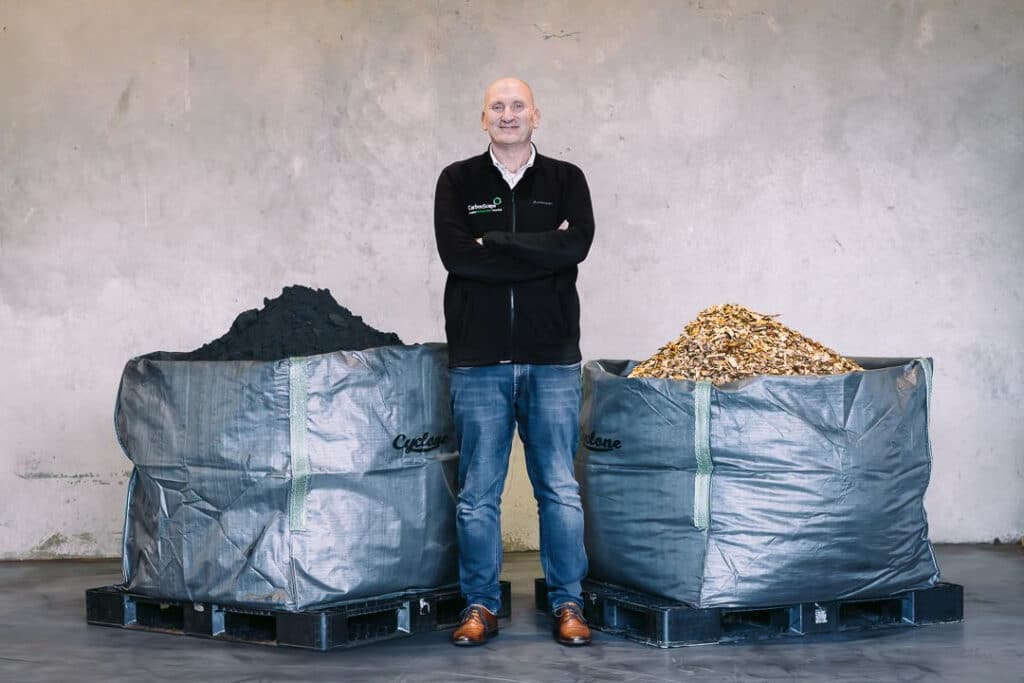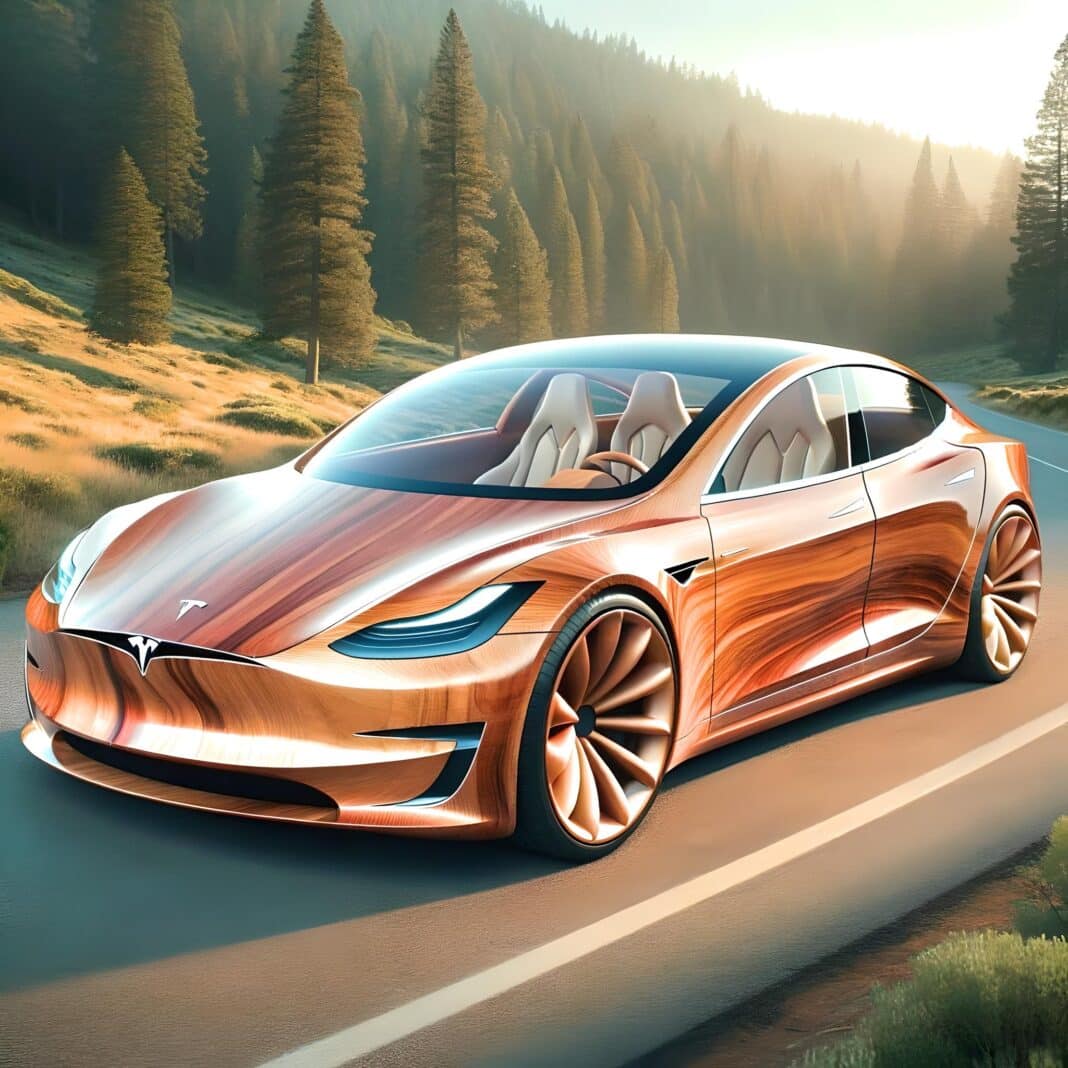NZ-based CarbonScape is turning millions of discarded woodchips into synthetic graphite and is increasingly confident that more than 50% of global EV batteries, by 2030, could use biographite made from forestry byproducts.
“Using just 5 per cent of the forestry industry byproducts generated in Europe and North America,” CEO Ivan Williams said, “we could meet half the total global projected graphite demand for grid-scale and EV batteries.”
It comes as the world is facing a 777,000-tonne shortage of graphite, with Wood Central reporting in December that the start-up has secured a US $18 million investment from the Finnish forest giant, battery producer Amperex Technology Ltd (ATL), and other parties to commercialise production of batteries powered by woodchips.
In recent months, EV makers, including Tesla, have been rushing to secure graphite outside its dominant producer, China – amid concerns that the West could fall into the same trap as it did with Russian Gas, with Europe increasingly concerned about China’s lithium-ion battery dominance.
That investment “marked a critical shift to clean energy,” with the start-up pushing onshore manufacturing and claims that the technology will help Western battery manufacturers in the face of “increasing supply chain instability (with Taiwan the dominant player in the market), while also onshoring production of a critical material to meet rapidly growing demand.”
The graphite used to manufacture EV batteries comes from natural or synthetic graphite mined from petroleum products, with woody biomass offering a much more eco-friendly solution, according to Mr Williams.
“The production of ‘traditional’ synthetic graphite uses fossil fuel-based feedstocks, such as coal tar pitch and petroleum coke, and fossil fuel-powered processes,” he said, “consequently, it emits 35 tonnes of carbon dioxide equivalent emissions for each tonne of graphite it produces.”
Natural mined graphite can also take a heavy toll on communities, animals, and the environment, and the extraction and production processes required to deliver a single tonne of anode-grade graphite from this raw material leave a 15-tonne carbon footprint.
Utilising this widely available, sustainable feedstocks “captures carbon and adds value to forest products that would otherwise have been emitted when rotted”, according to Mr Williams.
“This means our technology can remove the equivalent of 2.7 tonnes of carbon emissions for every tonne of biographite that it produces, meaning it is a climate-positive alternative to this critical material for lithium-ion batteries.”
He said production can also occur close to battery factories, reducing CO2 emissions by cutting transport distances.
“As we use a widely available feedstock, we can also site production plants nearby battery and cell, and EV manufacturers, further boosting supply chain security while delivering additional economic efficiencies and environmental benefits,” Mr Williams says.

The push to develop greener batteries comes as more than twenty thousand Teslas are about to flood the US used-car market after rental car giant Hetz vowed to shed more than a third of its EV fleet.
As Hertz sheds its stock, experts expect more used electric vehicles will hit the market from dealerships, other rental fleets and private owners, particularly as three-year leases expire.
“From next year onwards, there will be very significant volumes [of used EVs], and we can expect prices to go down significantly,” said Thibaud Simphal, Global Head of Sustainability for Uber.
According to Recurrent, a vehicle-data research firm, a record number of used electric vehicles could be sold in 2024, which produces a quarterly Used Car Prices and Market Report – with the Biden Administration leading a push for significant car producers to ramp up EV production over the next decade.
Wood Central understands that the regulatory push on EVs will only exacerbate demand for biographite, especially in the repair and secondary car market.
It comes as BMW is working with Madrid start-up Strong by Form to explore whether its future car chassis, body parts, and seats could be manufactured from mass timber rather than steel.
The technology can achieve the strength of concrete with one-tenth of the weight, uses fewer trees than cross-laminated timber products and has the potential to transform lightweight construction.

Last year, the Spanish start-up secured US $5.2 million in seed funding with its “oversubscribed round” led by CMPC Ventures, the corporate venture capital arm of CMPC, one of the world’s largest pulp and paper producers.
“CMPC is very excited to partner with Strong by Form,” according to Bernardita Araya, the CMPC Ventures Manager, who said the Chilian paper giant has an “enthusiastic, dedicated team of technical, strategic, and commercial experts to help the acceleration to industrial scale, making the most of the many synergies towards developing these more sustainable construction solutions.”
The hype centres around Strong by Form’s Woodflow technology, a design-to-manufacture computational platform fully automating the process from design to fabrication.
- To find out how car manufacturers want to use the next generation of mass timber products in car chassis, body parts, seats and windows, click on Wood Central’s special feature.







